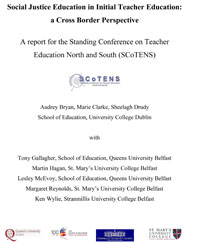18-19 February 2005
All Hallows College, Drumcondra, Dublin
A joint venture conference convened by ESAI & BERA supported by SCoTENS
To organise two research training days, one in Northern Ireland in Autumn 2006 and one in the Republic of Ireland in Spring 2007. The topics to be discussed include: ethics and educational research; mapping of territory of education research; specific skills in educational research; developing a repository of research in Northern Ireland and the Republic of Ireland, using the Centre for Cross Border Studies new BorderIreland information database; project design with reference to key strategic objectives at regional, national and European levels.

